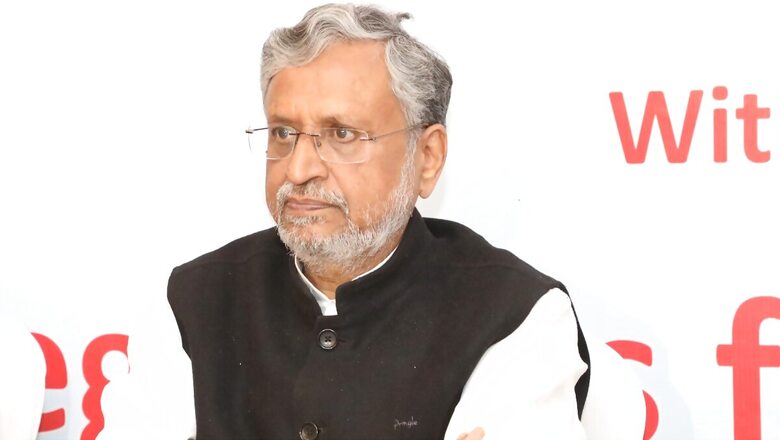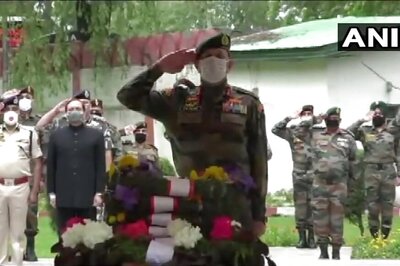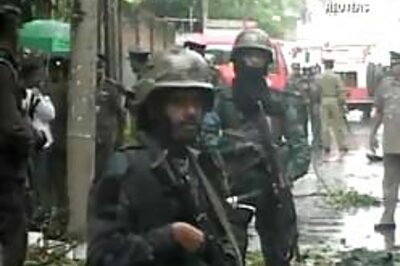
views
If one tried to make a list of the most understated politicians in India, and specifically in Bihar’s political history, Sushil Kumar Modi would definitely feature on that list. Modi, who succumbed to a long fight with cancer this Monday, May 13, was everything the intelligentsia wants to see in a politician: learned, articulate, measured in speech and demeanour, and rarely involved in controversies.
As part of a generation of leaders who participated in the JP Movement alongside RJD Chief Lalu Prasad Yadav and Chief Minister Nitish Kumar, Modi was a towering figure of the BJP in Bihar who played a pivotal role in turning the party into a force to be reckoned with. One of the few political leaders in the country who commanded respect across party lines, the passing of Sushil Kumar Modi has brought down the curtain on an illustrious career spanning over five decades.
Modi, who achieved the rare feat of having been a member of all four houses — Bihar legislative assembly and legislative council, Lok Sabha and the Rajya Sabha — burst into the political scene as a student leader during the JP movement in the 1970s. He was put behind bars five times under the Maintenance of Internal Security Act and spent 24 months in jail. During the Emergency, he truly came of age. In his book Beech Samar Me, Modi recalls the nineteenth month of his internment as a nightmare. He recalls, “I was handcuffed and my waist tied with a rope by policemen while being taken to a jail in Samastipur district, where I was kept among criminals and insane prisoners.” He goes on to describe how he had to miss his sister’s wedding even after he was released on parole. He went on to meet the then-Hazaribagh deputy commissioner to apprise him of the difficulties he faced in jail. The deputy commissioner, a haughty young man, when approached by Modi, started beating and abusing him before interning him in another made-up case.
Sushil Modi first entered the legislative assembly from the Patna Central seat in 1990, the same elections which catapulted Lalu to the chief ministership of Bihar. Always factual and articulate in his speeches, even during the period of 1990s in Bihar which hardly saw any serious debates on the floor, Modi started gaining visibility during his tenure as the Opposition leader during 1996-2004. He often attacked the Lalu government for its pervasive governance failures while also relentlessly pursuing corruption allegations against Lalu and his cabal. In 1996, he initiated a Public Interest Litigation (PIL) in the Patna High Court, demanding an inquiry into the fodder scam case. The PIL led to unearthing of one of India’s largest scams to date and eventually Lalu’s conviction.
While the fodder scam gained extensive coverage, there were other significant scams such as the Land-for-jobs scam that Modi kept pursuing. It was alleged that during the period 2004-2009, Lalu Yadav, as the railways minister, had obtained pecuniary advantages in the form of transfer of landed property in the name of his family members in return for the appointment of ‘substitutes’ on Group D Posts in different railway zones. Sushil Modi published a book called ‘Lalu Leela’, which listed these transactions with the names of involved parties, location of land parcels and the tacit arrangements.
While several politicians and groups have been credited for their fight against Lalu’s misgovernance of the 1990s, Modi could be termed the intellectual face of the fight against the misrule and corruption of the RJD government. “Lalu Yadav is no longer relevant in the politics of Bihar,” his proclamation in a media interview in 2022 said it all.
Modi also proved that he was not just a critic but suited to govern as well. He is truly credited with initiating the economic resurrection of Bihar after the abyss of Lalu’s rule. When JD(U)-BJP combine came to power in Bihar in 2005, Modi presented a status report on the economic survey of the state. It was the first such report by any state in the country and presented data which reflected the true state of Bihar’s economy beyond the cacophony and never-ending debate between the diametrically opposite narratives of jungle raj and social justice.
During the JD(U)-BJP rule in two phases – 2005-2013 and 2017-2020 – as deputy chief minister, he made earnest efforts to bring inclusive development to the state. He shared a great camaraderie with Nitish Kumar, often visible in his role as the troubleshooter whenever the JD(U)-BJP alliance hit choppy waters. His enduring legacy in Bihar politics will remain a shining example of how power and politics can be utilised for the betterment of the larger populace. He often spoke about using data and evidence to make effective public policies such as promoting girlchild education to delay their age of marriage and consequently controlling high population growth.
Despite largely being engaged in Bihar’s regional politics, Modi made a profound impact in national politics as a member of the Rajya Sabha and chairman of the Empowered Committee of State Finance Ministers for the implementation of the GST.
That Modi was destined to be in politics can be understood by the twists and turns in his life. In 1987, he borrowed Rs 70,000 from a bank to set up a computer education institute. However, the institute remained operational for just two and a half months and he came back to where he belonged – the political akhara of Bihar. An astute leader with a deeper sense of public service, he made a lasting impact on Bihar’s and our nation’s political discourse.
The writer is a BJP leader and author of a new book ‘Broken Promises: Caste, Crime and Politics in Bihar’. Views expressed in the above piece are personal and solely that of the author. They do not necessarily reflect News18’s views.




















Comments
0 comment